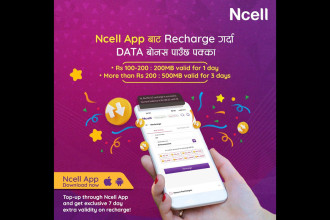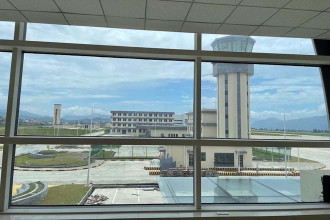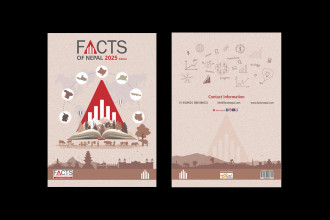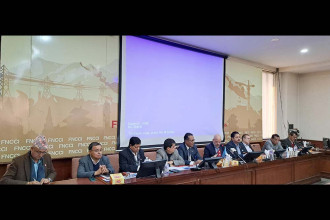-1725013865.jpg)
KATHMANDU: Prime Minister KP Sharma Oli inaugurated the Green Hydrogen Production and Refuelling Centre established at Kathmandu University (KU) in Dhulikhel today.
The occasion coincided with the 29th Convocation Ceremony of KU, where PM Oli also revealed a green hydrogen-fuelled car bearing the registration number (Ba 1 Jha 1111). He also took a ride in the same vehicle to the Convocation venue.
-1725013865.jpg)
During the event, PM Oli commended the construction of the green hydrogen production and refuelling station at KU, considering it a remarkable achievement. He emphasised that such innovative endeavours should extend beyond KU's campus and be replicated in other locations. As the Chancellor of KU, PM Oli recalled initiating discussions and studies on green hydrogen and wind power during his previous tenure as Prime Minister. He stressed the importance of prioritising green hydrogen adoption in vehicles.
Associate Professor Biraj Singh Thapa, Chief of KU's Nepal Hydrogen Initiatives, shed light on the production process. Green hydrogen is generated through the electrolysis of water, resulting in dry hydrogen, which is then purified and stored in low-pressure tanks. From there, it's transferred to car fuel tanks via high-pressure tanks.
-1725013865.jpg)
KU has been actively researching green hydrogen fuel for the past two years and achieved its first successful production of green hydrogen on April 2, 2023. Nepal Oil Corporation (NOC) provided financial support to KU for both green hydrogen production and the operation of hydrogen-fuelled cars. A Hyundai-manufactured car, imported from South Korea with NOC's assistance, serves as the hydrogen-fuelled vehicle.
The hydrogen refuelling centre, situated on the university campus, was established with technical support from a Korean green hydrogen production company. NOC contributed Rs 50 million to the project, enabling KU to remodel the car (at an investment of $33,000) and construct the refuelling centre (at a cost of Rs 13 million).
On average, the hydrogen refill centre produces 2 kilograms of hydrogen daily for study and research purposes. To produce one kilogram of hydrogen, ten litres of water and 40-45 units of electricity are required. The university's hydrogen-fuelled car can hold up to six kilograms of hydrogen, allowing it to travel approximately 650 kilometres when fully fuelled.
The KU aims to develop a pilot project for a hydrogen refuelling centre capable of servicing 30 to 35 hydrogen-fuelled cars. This groundbreaking initiative represents Nepal's first step toward utilising hydrogen for transportation.
By RSS






